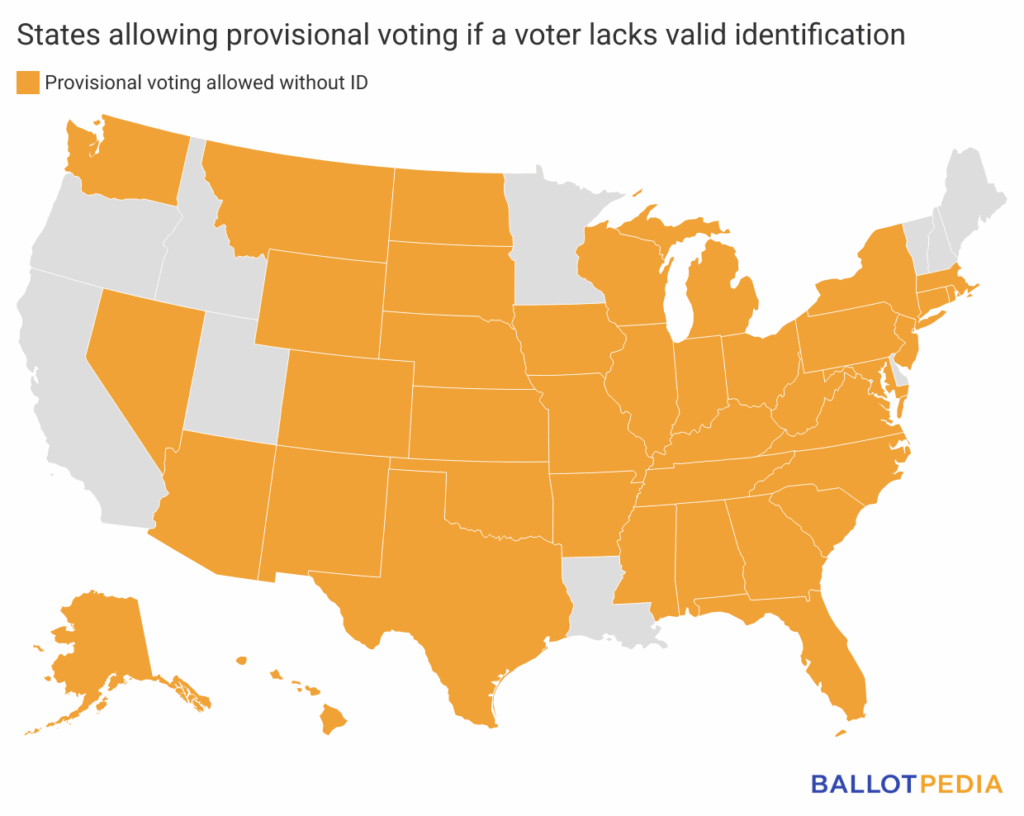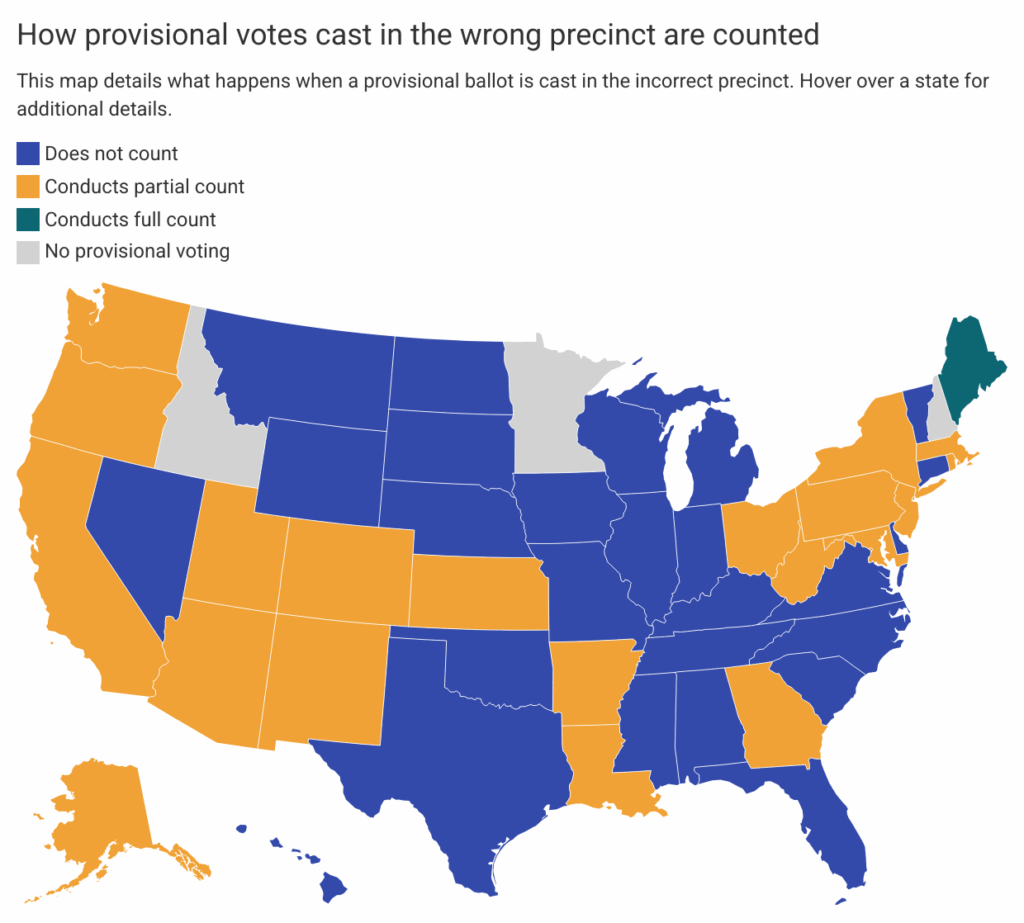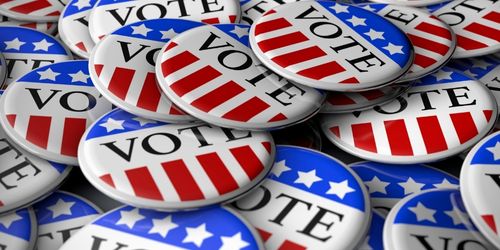In most states, voters who arrive at a polling place without their required identification or who aren't listed in the pollbook still have the option to cast a ballot. That’s because of a system called provisional voting.
A provisional ballot is a type of ballot that is not immediately counted. Election officials instead set these types of ballots aside until confirming whether the voter is eligible, has provided the required identification, or meets other requirements. Then, officials will count the provisional ballot as a regular vote.
The Help America Vote Act requires most states to provide for a provisional balloting process. States that had enacted same-day voter registration processes as of 1993 are exempt from this requirement, though some of them have adopted provisional voting procedures.
Forty-seven states have provisional voting in at least some situations. Idaho, Minnesota, and New Hampshire do not have provisional voting. In some states, voters casting a provisional ballot might only be able to vote in some races.
According to the U.S. Election Assistance Commission, there were 1,290,670 provisional ballots cast during the 2024 election, or 0.9% of all ballots cast nationwide.
Across the country, 40 states allow voters to cast a provisional ballot if they do not have the required identification, either because of a voter ID law or because they are a first-time voter who did not provide ID when they registered to vote. Generally, as long as the voter provides a copy of their ID by a set deadline and they are otherwise eligible to vote, the ballot will be counted.

Sometimes, a voter might be directed to cast a provisional ballot if they show up at the wrong voting precinct. In 20 states, their vote will be counted in some of the races, such as federal or statewide races that are the same at every polling place. Maine fully counts provisional ballots that are cast in the wrong precinct. Twenty-six states do not count provisional ballots cast in the wrong precinct at all.

Fourteen states require voters to cast a provisional ballot if a judge or election administration authority orders that polling hours be extended, either in a specific jurisdiction or statewide. As long as the order is not overturned and the voters are otherwise eligible to vote, provisional ballots cast for this reason are counted without any additional action required from the voter.
For instance, the Fulton County Department of Registration and Elections extended polling hours in Atlanta until 8 p.m. during the Nov. 4 election, a move that was later upheld by a judge. Voters affected by the order were instructed to cast provisional ballots.
Nationally, 83 bills have been introduced this year on provisional voting. Four states have enacted five laws on provisional voting. Lawmakers in Maryland and Montana added circumstances in which voters may cast a provisional ballot. Lawmakers in West Virginia removed a circumstance in which voters would need to cast a provisional ballot. Now, voters who change their residence within a county may cast a regular ballot during early voting if they vote in the precinct of their new address.
In 2024, New Hampshire enacted legislation which removed its provisional voting system. Five states passed six provisional voting laws in 2023. Six states passed seven such laws in 2022.
To learn more about provisional voting legislation, check out Ballotpedia’s Election Administration Legislation Tracker.
Click here to learn more about provisional voting in each state.



